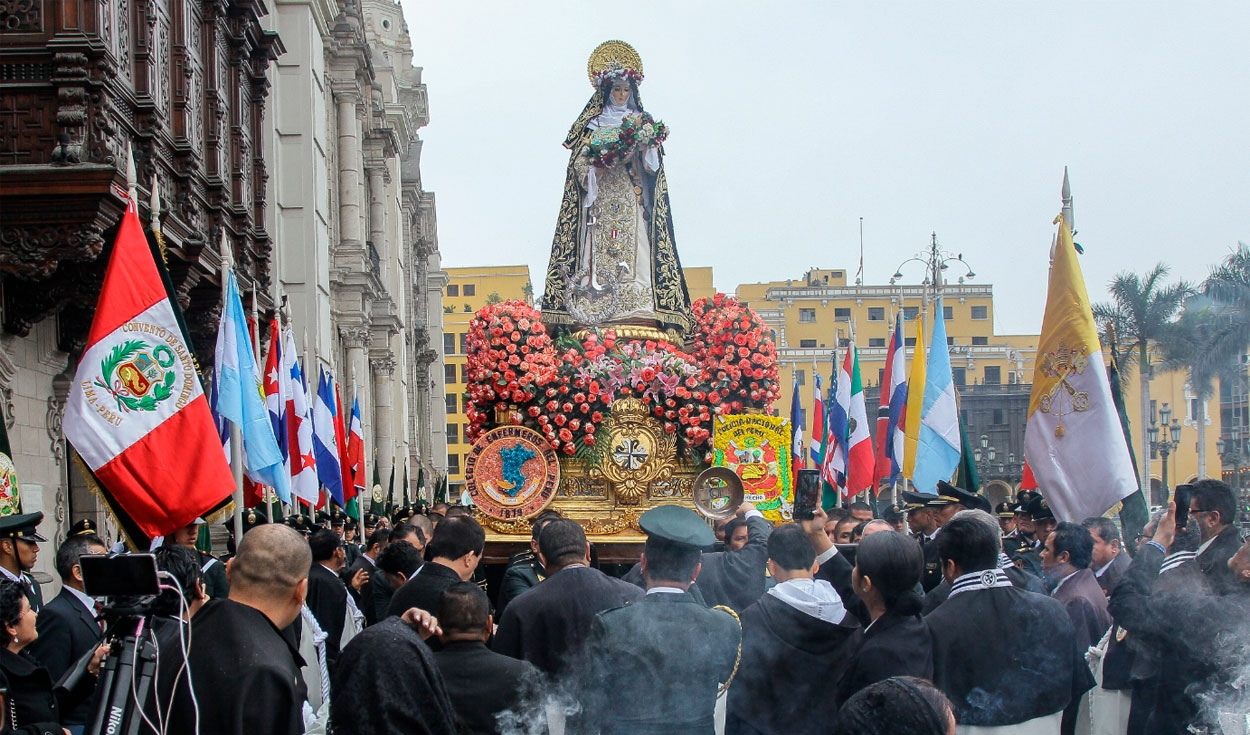
Two bills in Congress seek to eliminate a series of national calendar holidays with the purpose of optimizing labor productivity and minimizing “negative economic impacts derived from the proliferation of paid rest days at the national level.” However, the Peruvian Episcopal Conference warned the implications that these initiatives would bring.
Through a letter sent to Congress by Carlos García Camader, bishop of Lurín and president of this institution, they expressed their position against suppressing the character of holidays in religious festivities such as Santa Rosa de LimaSan Pedro and San Pablo, as well as the Immaculate Conception.
Episcopal Conference opposes eliminating religious holidays
At the beginning of his communication sent to the president of Congress, Eduardo Sallejuana, the Peruvian Episcopal Conference referred to the bills that propose the elimination of national holidays. According to the institution that represents the Catholic community of the country, these proposals would affect the feast of great relevance in the Catholic tradition.
“The elimination of the holiday character in religious festivities such as August 30, on June 29 and December 8 could generate discontent in the Catholic community and other Christian denominations that see these days as essential for their spiritual life. In addition, it could be interpreted as a measure that affects the religious practice and autonomy of the Church in the regulation of their own festivities,” they said.
In detail, they raised their protest voice in defense of the feast of Santa Rosa de Lima that is celebrated every August 30. For the Episcopal Conferencethis commemoration has an international recognition and generates a positive impact on the entire population, since it promotes Peruvian tourism and trade.
Not only. They made clear that the code Canon law It establishes that the only authority to eliminate or transfer these parties is them. Therefore, changing these dates “without proper consultation with the Catholic Church would violate the institution’s right to regulate its own festivities, in accordance with the canonical system.”
Finally, they indicated that they enjoy full independence and autonomy against the Peruvian State, as well as the Catholic Church. They suggested to Congress to evaluate alternative mechanisms to improve productivity and establish a dialogue with them to analyze the social and cultural impact of these modifications.
“While the legislative initiative seeks to strengthen the productivity of the country, the elimination of holidays with religious meaning could have an adverse impact on the practice and expression of the Catholic faith in Peru. Therefore, I carefully request that the Congress of the Republic evaluate with greater deep They sentenced.
Congress seeks to eliminate national calendar holidays
Peru has 16 holidays. However, in the Congress There are two proposals of law that seek to reduce the amount of paid breaks of workers subject to the labor regime of private activity. The last one was presented in February by the President of Parliament, Eduardo Sallejuana.
His proposal seeks to convert six holidays into non -working days with compensable character. In this way, the holidays that do not coincide with Monday or Friday, except in the case of the national holidays, Christmas and the New Year. In addition to this sashing initiative, there is another one presented by the legislator Wilson Soto.
The popular action parliamentarian also proposes to eliminate six national holidays to turn them into commemorative dates. Among the affected holidays are on June 7 (Flag Day), on August 30 (Santa Rosa de Lima Day), October 8 (Angamos Combat), and on July 23, August 6 and December 9.
Source: Larepublica
Alia is a professional author and journalist, working at 247 news agency. She writes on various topics from economy news to general interest pieces, providing readers with relevant and informative content. With years of experience, she brings a unique perspective and in-depth analysis to her work.












